First awarded in 1917, the Pulitzer Prize is named in honor of Joseph Pulitzer, the groundbreaking Hungarian-born newspaper magnate who left money in his will to establish an award recognizing outstanding achievements in American journalism, arts and letters. Today, the Pulitzer Prize is regarded as a benchmark of literary excellence and is highly coveted by writers in all genres.
The Pulitzer Prize for History has been awarded annually ever since the awards were first established over a century ago. Over the years, historical works have also featured heavily in the Biography and General Nonfiction categories, meaning that there is plenty of choice for anyone looking to create a reading list based around history-themed Pulitzer winners. Here are ten of our own Pulitzer Prize-winning favorites, specially chosen to cover a range of different historical periods and topics.
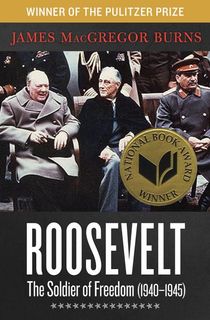
Roosevelt: The Soldier of Freedom (1940–1945)
Winner of the 1971 Pulitzer Prize for History, this authoritative biography of Franklin D. Roosevelt examines events from 1940 to 1945. The account begins with FDR’s re-election to the presidency for an unprecedented third time and concludes with his death a matter of weeks before the end of World War II. Regarded as one of the world’s leading authorities on leadership theory, James MacGregor Burns provides invaluable insight into the political skills displayed by Roosevelt when dealing with the challenges caused by war, as well as those shown by other world leaders such as Churchill and Stalin.
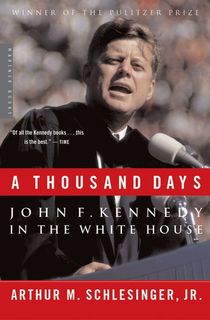
A Thousand Days
Arthur M. Schlesinger Jr.’s detailed account of John F. Kennedy’s time in the White House was published only two years after the President’s assassination in November 1963. The renowned historian documents Kennedy’s time in office from a unique insider’s perspective. He himself served as the President’s special assistant from 1961 to 1963, after being handpicked for the role.
Awarded the 1966 Pulitzer Prize for Biography, A Thousand Days was described by The New York Times as “at once a masterly literary achievement and a work of major historical significance”.

"The Good War"
Awarded the 1985 Pulitzer Prize for General Nonfiction, Studs Terkel utilizes eyewitness accounts from those on both sides of the conflict to compile this unique oral history of World War II. The author interviewed military personnel and civilians alike to create this compelling insight into the experience of war told from a wide variety of different perspectives. The New York Times Book Review acclaimed Terkel’s masterpiece as “the most vivid collection of World War II sketches ever gathered between covers”.
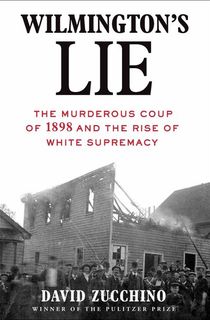
Wilmington's Lie
David Zucchino delved deep into contemporary newspaper accounts, personal papers and official documents to compile this compelling account of the shocking, but relatively little known, events of 1898 that rocked one of North Carolina’s largest cities. The author reveals the shocking truth behind the violent overthrow of a democratically elected, racially integrated government in Wilmington by a mob of white supremacists. Wrongly portrayed for too long as merely a race riot, Zucchino sets the record straight in this winner of the 2021 Pulitzer Prize for General Nonfiction.

Encounters at the Heart of the World
Elizabeth A. Fenn vividly brings to life the long-forgotten history of the Mandan people in this fascinating Pulitzer Prize-winning book. This once-vibrant Native American community formerly occupied large tracts of land in what is now North Dakota, but was mostly wiped out by imported diseases like smallpox following the arrival of the European settlers, and evidence of its culture was largely lost.
Praised for her “engrossing, original narrative” by the Pulitzer Prize Committee, Fenn draws upon important new discoveries in archaeology, anthropology and even nutritional science to piece together in unprecedented detail the extraordinary history and culture of the Mandan people.
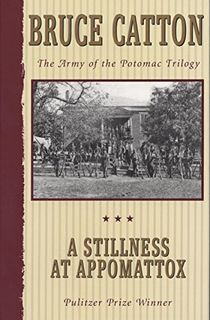
A Stillness at Appomattox
Acclaimed as “one of America’s foremost Civil War authorities” (Kirkus Reviews), Bruce Catton was awarded the 1954 Pulitzer Prize for A Stillness at Appomattox, the final volume in his Army of the Potomac trilogy. Focusing on events during the final year of the Civil War, Catton describes Union Army leader Ulysses S. Grant’s campaign in Virginia from 1864 to the dramatic showdown at the Appomattox Court House in April 1865. As well as studying official war records, the author made extensive use of the combatants’ personal correspondence and memoirs to produce this compelling account, including exclusive access to family papers relating to Ulysses S. Grant himself.
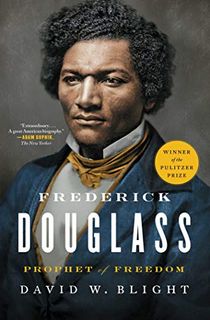
Frederick Douglass: Prophet of Freedom
This “cinematic and deeply engaging” biography (New York Times Book Review) of iconic 19th-century African American abolitionist, Frederick Douglass, was awarded the Pulitzer Prize for History in 2019. Having escaped from slavery in Maryland as a young man, Douglass became one of the world’s most celebrated orators and writers, campaigning tirelessly against slavery and for African American rights.
David Blight took the best part of a decade to complete his much-anticipated biography of Douglass, but it was well worth the wait. The Pulitzer Prize Committee cited Blight’s achievement in demonstrating the scope of Douglass’ influence “through deep research on his writings, his intellectual evolution, and his relationships”.
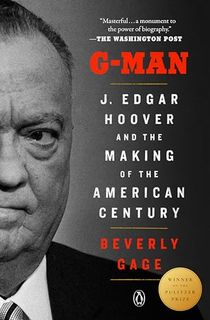
G-Man: J. Edgar Hoover and the Making of the American Century
Beverley Gage’s groundbreaking 2022 biography of J. Edgar Hoover has won multiple awards, including a Pulitzer Prize. The Washington Post describes her fresh take on the life and career of one of America’s most controversial 20th-century figures as “an enduring, formidable accomplishment”.
Drawing on a wide range of sources, including previously unreleased material, Cage adopts a more nuanced and even-handed approach to her subject than some of the previous one-dimensional portraits of Hoover. As a result, she is ideally placed to explore how the rapidly evolving political and cultural world of mid-20th century America contributed to Hoover’s eventual fall from grace.

Washington: A Life
Awarded the Pulitzer Prize for Biography, Ron Chernow’s 2011 account of George Washington’s life and career is notable for the breadth of its scope and subject matter. As well as offering plenty of interesting insight into the first President’s military and political career, Chernow’s “sweeping, authoritative portrait of an iconic leader” (Pulitzer Prize Committee) delves deep into hitherto previously little-discussed aspects of his personal life and character to reveal a surprisingly complex man.
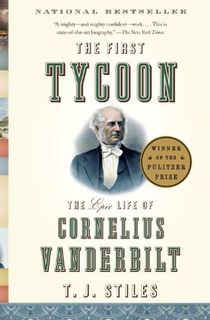
The First Tycoon: The Epic Life of Cornelius Vanderbilt
In awarding The First Tycoon the 2010 Pulitzer Prize for Biography, the judges praised T.J. Stiles for his “penetrating portrait” of the self-made multi-millionaire who is widely regarded as having paved the way for modern capitalism. Nicknamed “The Commodore”, Cornelius Vanderbilt made his fortune in shipping and railroads at a time of unprecedented expansion in the US transport network. Stiles’ meticulously researched biography offers many fresh insights into the life and times of the influential 19th-century entrepreneur whose success coincided with a seminal period in US history.





